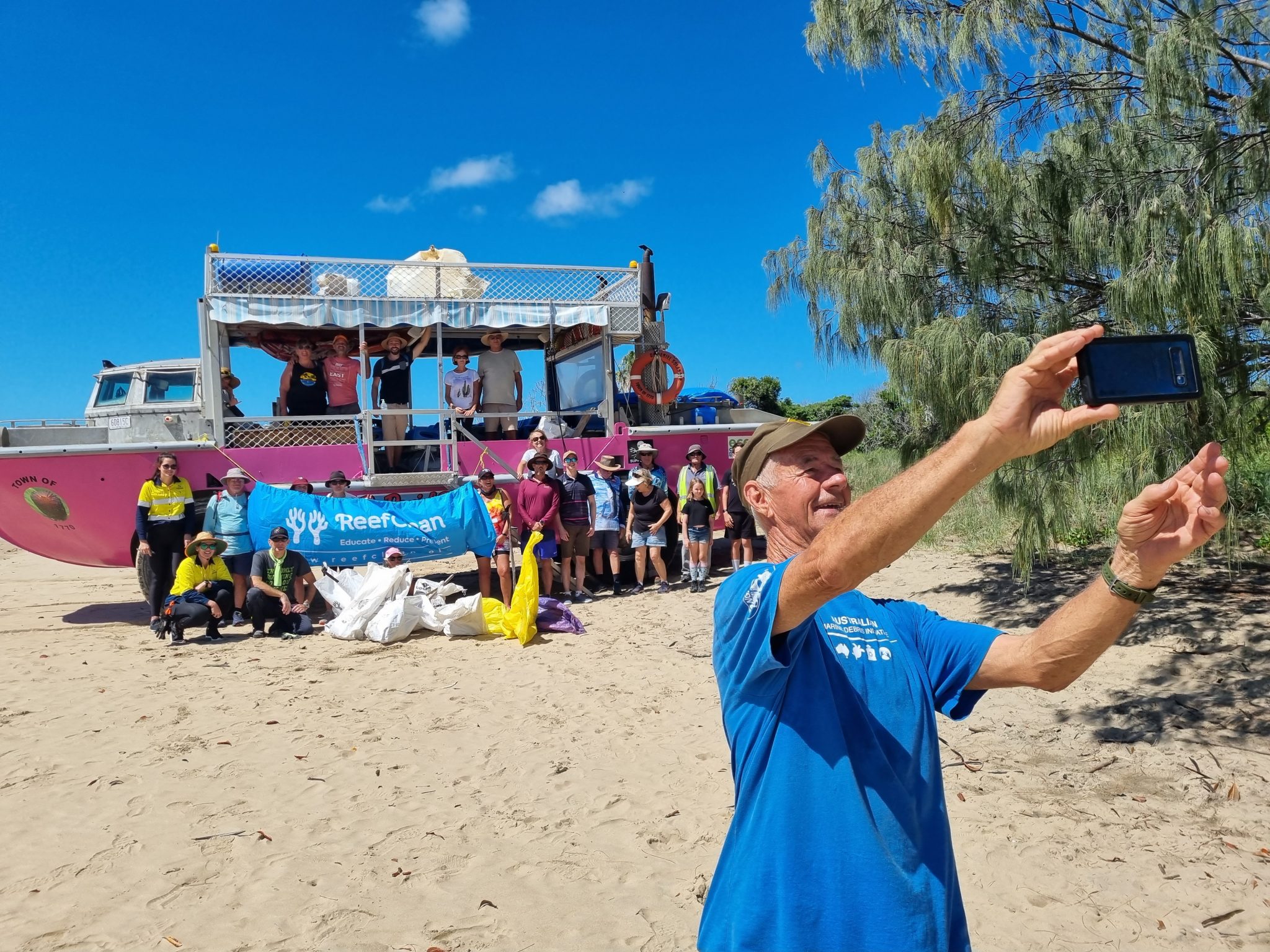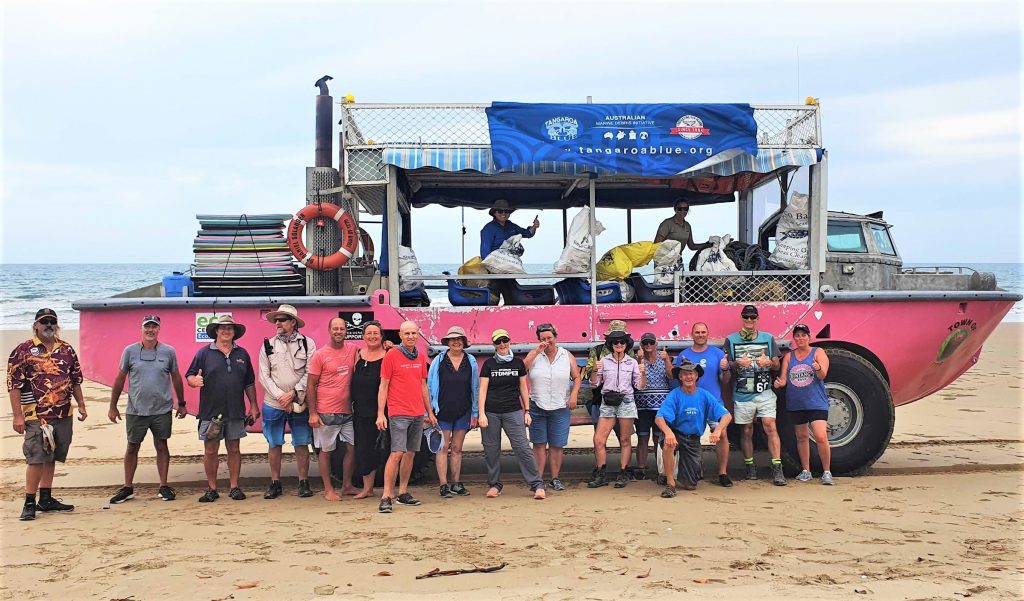09 Jun Beach Clean

Why we beach clean with Tangaroa Blue
By now, we are sure you’re aware that the worlds beaches and oceans are getting littered with more plastic than ever before. In fact, it’s estimated that 8 million tonnes of plastic enters the ocean each year (that’s equivalent to a rubbish truck full of rubbish every minute).
Beach cleaning is already an everyday norm for 1770 LARC! Tours but you may have noticed recently that we have started conducting beach clean ups with Tangaroa Blue. Why would we do this? Well, we have realised that there is a lot more that we can be doing, than just removing rubbish from the beach.
Education and Training
The Tangaroa team are specially trained and great leaders. They provide tips for more effective clean up methods. The most up to date information on dangerous items that could be present on our beach. Along with important safety precautions regarding these items. They provide guidance for entering the data of our debris collected into the database. And can answer questions that we cannot.
The More the Merrier
Us volunteering with Tangaroa Blue allows you volunteer too. Tangaroa Blue has great reputation and a strong following. When we organise to conduct an event together we will both share the invite on our social pages. This means that we double our reach to keen volunteers who want to help out by doing their bit for the environment. Tangaroa Blue also provides us with all the equipment needed to safely conduct a clean-up. Following the event they provide us with feedback, a report and share this information through their channels.
Have you heard of AMDI?
Tangaroa Blue’s Australian Marine Debris Initiative (AMDI) includes the Australian Marine Debris Database, the only coordinated and scientific program to monitor marine debris in Australia. This program measures the volume, type and origin of marine debris found along our coastlines.

Source Reduction Plan
Once you have good baseline data from a clean-up site, you can use this data to create an understanding of what the most common items being found are and where they might be coming from. This data is then used to make informed decisions about how best to respond to the marine debris in our local area and create a source reduction plan (SRP) that would stop those items collected from ever entering the environment in the first place.
Our next beach clean
Are you keen to get onboard our next clean up? That’s great! Our next scheduled clean up is Thursday 6th October 8am – 12pm. Keep an eye on our Facebook page for the event updates. We look forward to seeing you. Do you want to help from home? Download the AMDI app and start entering your collections.

No Comments